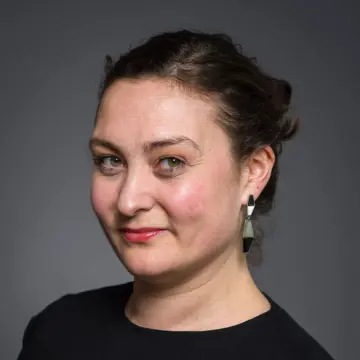THIS CONTENT IS BROUGHT TO YOU BY Fridtjof Nansen Institute - READ MORE
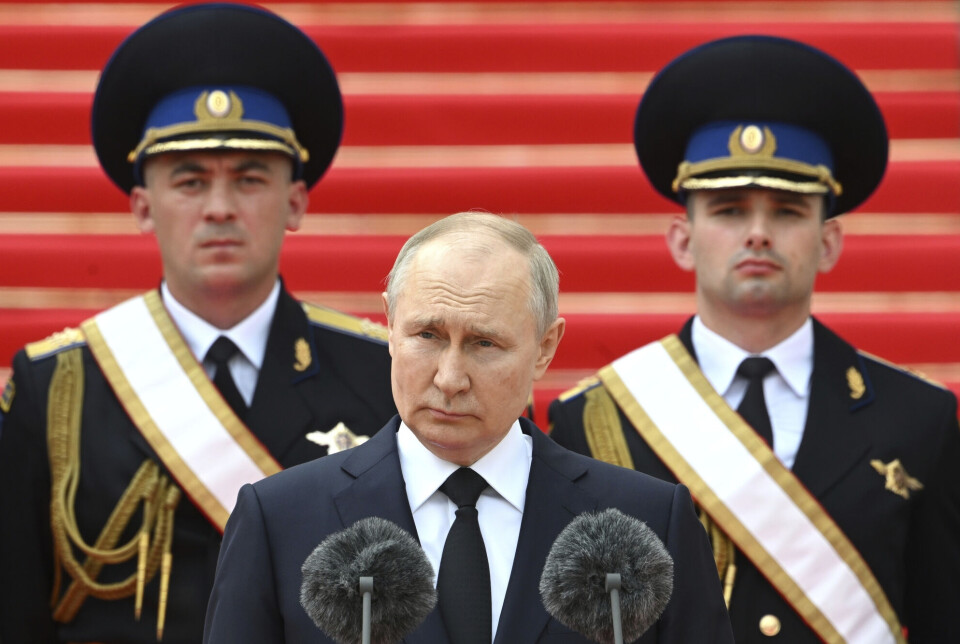
Fiction and reality in Russian politics
Election fraud, lies, and kleptocracy characterise politics in Russia.
“Russia in 2023 stands out as an authoritarian kleptocracy riddled with lies and corruption. It has silenced political opposition, free media, and civil society, while engaging in an internationally condemned and brutal war against a peaceful neighbour,” Geir Hønneland says. He is a research professor at the Fridtjof Nansen Institute (FNI).
Local elections were recently held in large parts of Russia. Putin was declared the winner in all regions, but Hønneland believes that the election results were carefully orchestrated by the Kremlin.
“The political system in Russia might give the impression that this is a fairly normal country that follows the principles of power-sharing, democratic ideals, and civil rights. But that's not the case,” he says.
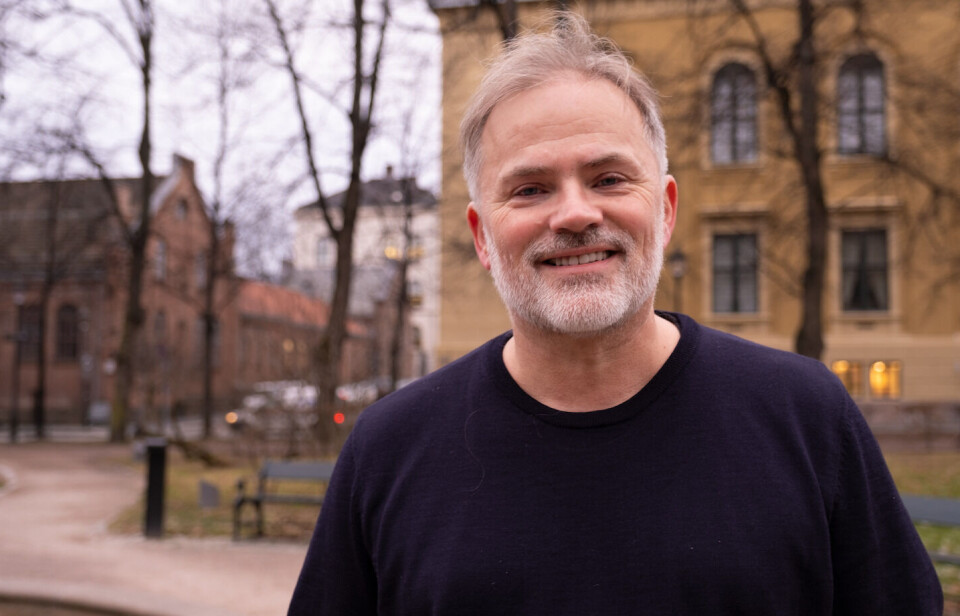
Hønneland notes that opposition parties must be approved by the Kremlin, and are meant to create a semblance of democracy and a multi-party system.
However, they can never criticise the president, and so-called 'new' parties are formed with the kremlin's blessing to siphon votes away from other parties.
Together with Russia expert Jørgen Holten Jørgensen, Hønneland has recently published a book that provides an introduction to Russian politics. They try to answer the question: What kind of country is Russia, really?
Power concentrated around Putin
In stark contrast to the principles of separation of powers in the Russian constitution, Putin has built a system where everything hinges on him, and everyone in important positions competes in demonstrating the utmost loyalty to him.
“We've seen many examples of what happens to ‘traitors’ – those who swerve from the regime's course or openly oppose the president. They may get poisoned, fall from fifth-storey windows, commit ‘suicide’, often after having killed their entire families beforehand, or – as with the leader of the Wagner Group, Yevgeny Prigozhin – their planes may crash,” Jørgensen explains.
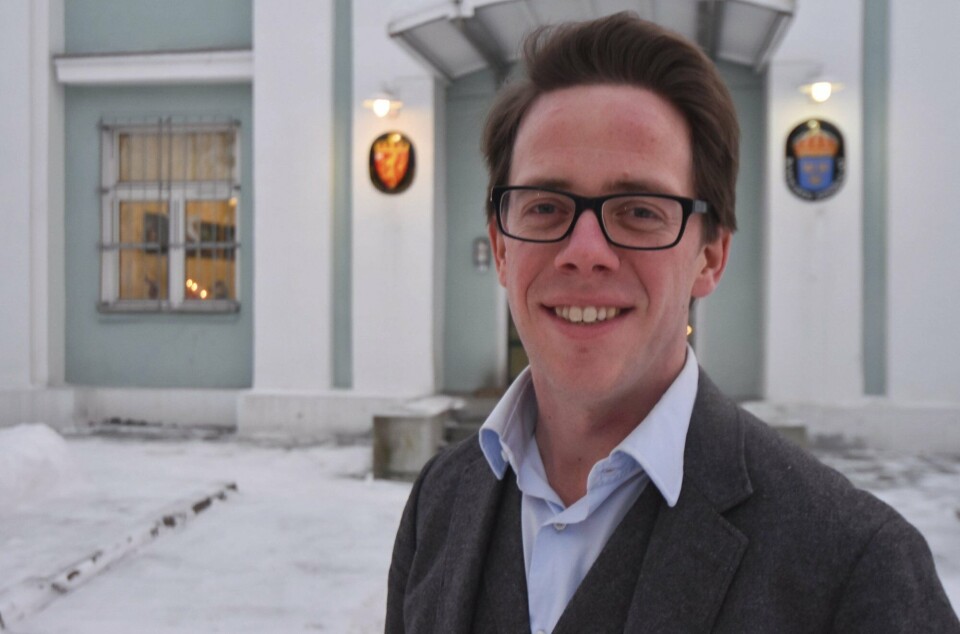
Never has Putin's authority been so seriously challenged as by Prigozhin, the mercenary leader and oligarch who headed the Wagner Group, after the massive uprising this spring and summer.
“The uprising showed that Putin has much less control than one might have thought. The dictator's perpetual problem is that he can't trust anyone,” Jørgensen says.
The difficult Russian identity
In their book on Russian politics, Hønneland and Jørgensen examine government domains and political developments since the fall of the Soviet Union.
“Being Russian means operating in a landscape where you never know if what you see and hear is real or not, whether it's good or bad. It's not easy to live like that,” Hønneland says.
He says that either you play along, or you just stop caring.
"If you refuse to play along, if you insist on distinguishing right from wrong and true from false, then you put yourself in a very difficult situation. System-critical opposition and civil society in Russia have been almost eradicated,” Hønneland believes.
Authoritarian one-man rule
Hønneland highlights the widespread corruption and concentration of power around the Russian president.
He has full control over the most important ministries, as well as the security service FSB.
“In practice, it's the president who appoints the prime minister and the government,” he says.
Hønneland also points to the strategic role of the presidential administration in the Kremlin, comparing it to the Communist Party leadership in the Soviet Union.
“The Kremlin's presidential administration consists of 3,000 people. It has taken over the role the Communist Party's leadership had in the Soviet Union. This is where policy formulation happens in practice,” he says. “The government may be toothless in some important matters, but it has a say in economic policy and softer policy areas such as culture, education, and health."
Russia has now removed the limitation on how long Vladimir utin can remain as president.
Corrupt and trapped in their own game
Russian politicians cling to power because they have no other choice, Hønneland believes. Through his research, he has interviewed Russians from various strata of society.
He explains how politicians get caught in a web of economic crime where everyone is a potential enemy:
“Putin's paternalistic regime is based on loyalty and dependency: Everyone must deliver upward, and everyone owes something to someone higher up in the system," he says.
As long as you sit in the State Duma, you have immunity from prosecution. Corruption permeates the political system in the world's largest country.
"The prospect of gain for you and your associates serves as a significant motivation for holding onto political power,” he says.
Profiting personally at the State's expense
When the Soviet Union fell and the privatisation of state property began, party and industry elites had a significant advantage because they had managed to retain their positions. These people became wealthy capitalist factory owners and bank directors.
Huge assets ended up in private hands for next to nothing. While most people lost their savings, a small group became incredibly rich. These super wealthy few are known as oligarchs today.
Russia is rich in natural resources: oil, gas, minerals, forests, and fish. The nouveau-riche Russians who ventured into stocks and finance built their wealth here, in primary industries.
State property was also given away more or less given away to those who happened to be well-positioned at the right time.
“How does this affect politics today?”
“It's a tradition in Russia that those in power consider themselves entitled to profit from the country's most lucrative businesses,” Hønneland says.
"Our deceptive lives"
He adds that the authorities can present the most outrageous falsehoods without blinking – behaviour known as ‘the big Russian lie’.
Such lies are evident also at the highest levels of politics: “Russia has absolutely no intention of attacking Ukraine,” Foreign Minister Sergey Lavrov said only a few days before the 2022 invasion.
“Ukraine is governed by a Nazi regime imposed by Western powers,” Putin claimed.
These lies may be perceived as indisputable truth by broad sections of the Russian population, but people are accustomed to the fact that what comes from the authorities isn't always trustworthy.
It is a kind of social contract: “We know that they’re lying, and they know that we know it – we simply agree that no one talks about it.”
How is it possible for the political leadership to operate like this and still be popular among the population? According to Hønneland, Russians would rather have a strong leader than unpredictability and freedom. And they fear the authorities' arbitrariness.
Suppression of system-critical opposition
In contrast to the constructed ‘opposition’ approved by Putin, the real opposition is left with no chance.
“All genuine resistance is stopped at the outset. Parties and candidates are either denied the opportunity to run or they have their candidacies undermined by dirty PR. Or worse, members of the opposition are imprisoned, poisoned, even shot,” Hønneland says.
He explains that there are many examples to choose from and points to the most well-known:
“Aleksei Navalny, a corruption investigator and prominent figure in the Russian protest movement in recent years, was poisoned and sent abroad for treatment – but spectacularly returned to his homeland. He knew full well that he would be arrested immediately. He is now incarcerated in a high-security Russian prison.”
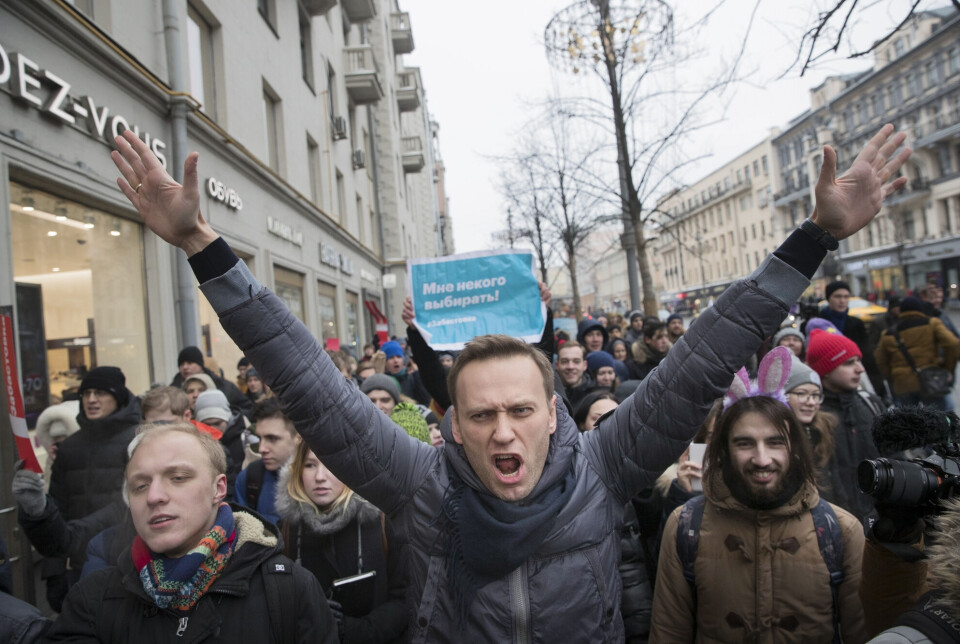
Branded as a foreign agent
Restrictions in Putin's Russia have come in waves. Prominent in the past decade is the increasingly extensive ‘foreign agent legislation’.
“The foreign agent legislation has become the authorities' foremost weapon in suppressing potential critics, Russian independent media, and civil society organisations,” Hønneland says.
After 10 years of extensive tightening, Russia's foreign agent legislation was consolidated into one law in 2022: The law on controlling activities of individuals under foreign influence.
“The law applies to both individuals and organisations, regardless of nationality. Funding from abroad is no longer a requirement – only that you are found to be ‘under foreign influence’ and engaged in political influence work or 'intentionally' collect or share information about military or military-technical activities,” Hønneland explains. He has previously served as the Secretary General of the Norwegian Helsinki Committee.
Being ‘under foreign influence’ can mean everything from collaborating with foreign institutions and belonging to international organisations to studying foreign philosophers.
Challenging perceptions of Russia
Hønneland concludes that today's Russia is a country marked by authoritarian control where reality is complex and challenging.
FNI's director Iver B. Neumann is also a Russia expert.
“Jørgen Jørgensen and Geir Hønneland have contributed to making the broad Norwegian discussion of Russian politics even broader. Since they completed their work, it has become even more evident that Russia is undergoing a military buildup as extensive as the one conducted under Stalin. We can expect to have to grapple with an aggressive and violent Russia for years to come,” he says.
Reference:
Jørgensen, J. & Hønneland, G. 'Russisk politikk: En innføring' (Russian politics: An introduction), Fagbokforlaget, 2023.
———
Read the Norwegian version of this article on forskning.no
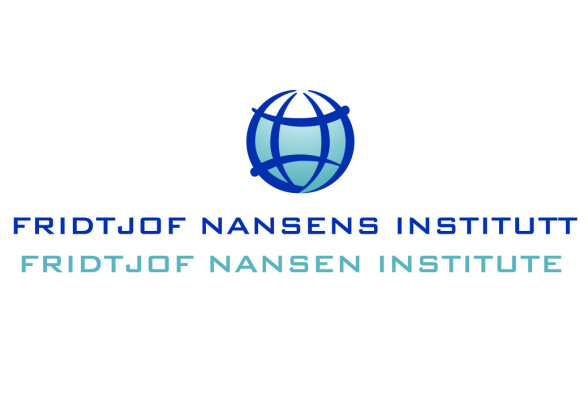
This content is paid for and presented by Fridtjof Nansen Institute
This content is created by Fridtjof Nansen Institute's communication staff, who use this platform to communicate science and share results from research with the public. The Fridtjof Nansen Institute is one of more than 80 owners of ScienceNorway.no. Read more.
More content from Fridtjof Nansen Institute:
-
“It's been a long time since we've seen so many positive developments in such a short period. We may indeed be entering a turning point for nature”
-
Russia could lose its big chance in the global gas market
-
Russia pushes for a fossil economy. Can China stop them?
-
What does China aim to gain in the Arctic?
-
Where do the metals in your electric car come from?
-
Power struggle in the Arctic Council: Greenland demands a leading role







